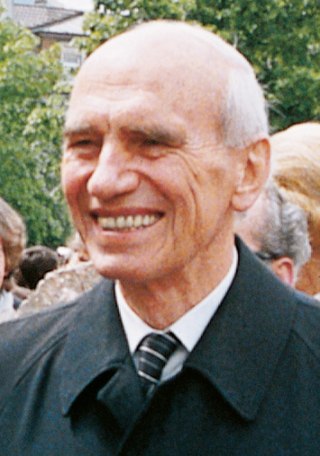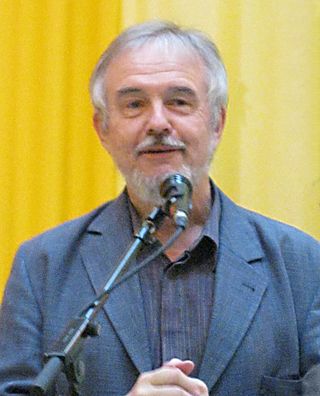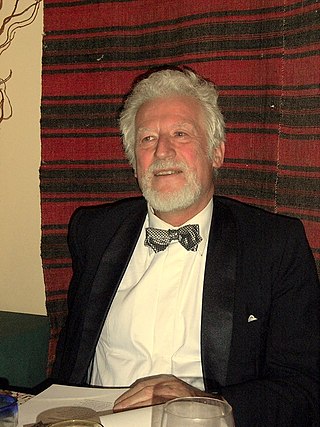Related Research Articles

Egon Joseph Wellesz, CBE, FBA was an Austrian, later British composer, teacher and musicologist, notable particularly in the field of Byzantine music.

Julius Pokorny was an Austrian-Czech linguist and scholar of the Celtic languages and of Celtic studies, particularly of the Irish language, and a supporter of Irish nationalism. He held academic posts in Austrian and German universities.

Rudolf Kirchschläger, GColIH was an Austrian diplomat, politician and judge. From 1974 to 1986, he served as President of Austria.

The University of Music and Performing Arts Vienna is an Austrian university established in 1817 located in Vienna. With a student body of over three thousand, it is the largest institution of its kind in Austria, and one of the largest in the world.

Herbert Hunger was an Austrian Byzantinist, palaeographer and university professor. He was an influential specialist in Byzantine literature, particularly of the secular vein.

Emil Brix is an Austrian diplomat and historian.

Richard Franz Stöhr was an Austrian composer, music author and teacher.
Fritz Schachermeyr was an Austrian historian, professor at the University of Vienna from 1952 until retirement.

Carry Hauser, born Carl Maria Hauser, was an Austrian painter, stage set designer and poet.

Peter Planyavsky is an Austrian organist and composer. He attended the Schottengymnasium. After graduating from the Vienna Academy of Music in 1966 he spent a year in an organ workshop, and has been instrumental in organ-building projects, notably the construction of the Rieger organ in the Great Hall of the Wiener Musikverein. In 1968 he was appointed organist in the Upper Austrian Stift Schlägl, and the following year organist at Vienna's St. Stephen's Cathedral. From 1983 until 1990 Planyavsky was their director of music, with overall responsibility for church music at the cathedral.

Dirk Rupnow is a German historian. Since 2009 he has taught as assistant professor, since 2013 as associate professor at the University of Innsbruck, Austria, since 2010 he has been head of the institute for contemporary history there.
Albert Joseph Maria Defant was an Austrian meteorologist, oceanographer and climatologist. He published fundamental works on the physics of the atmosphere and ocean and is regarded as one of the founders of physical oceanography.
Uwe Harten is a German musicologist, who works in Austria.

Erich Schenk was an Austrian musicologist and music historian.
Fritz Walden, real name Friedrich Drobilitsch, also Fritz Drobilitsch-Walden and Franz Drobilitsch, was an Austrian publicist, author and cultural editor as well as film, literature, music and theatre critic.

Helmut Birkhan is an Austrian philologist who is Professor Emeritus of Old High German Language and Literature and the former Managing Director of the Institute for Germanic Studies at the University of Vienna.

Robert Freund is an Austrian horn player.

Friedrich Wildgans was an Austrian composer and clarinettist.

Richard Dünser is an Austrian composer of stage works, orchestral music and chamber music, among others.
Felix Stranky was an Austrian banker and Holocaust survivor.
References
- Material from External links